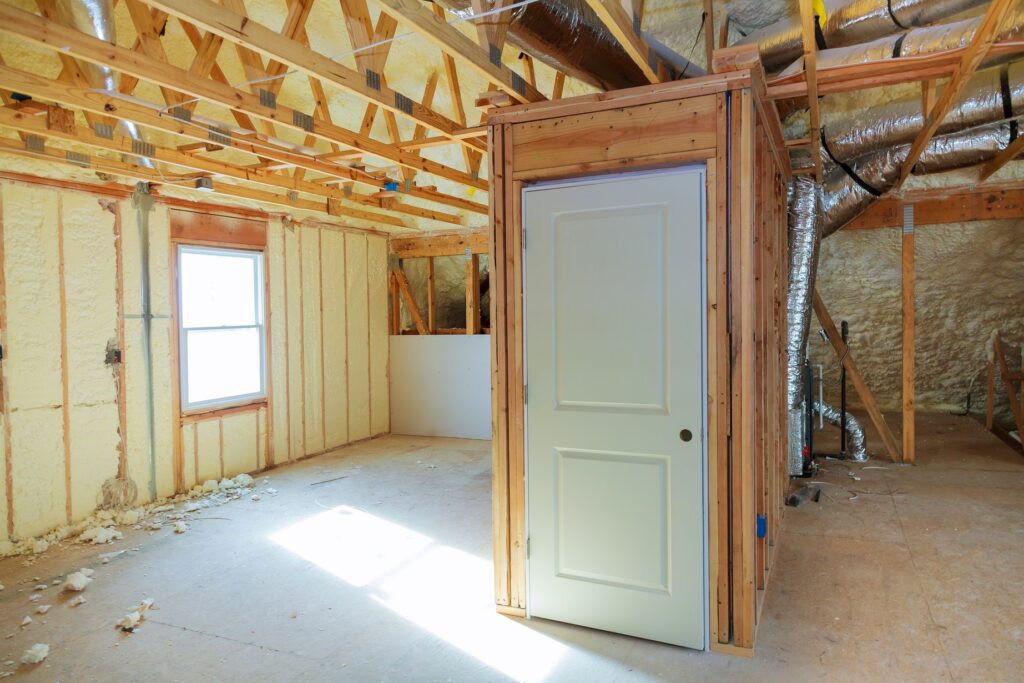Homeowners looking for ways to save energy in their homes and improve the overall comfort of the living environment should consider insulation. Insulation helps keep the temperature in a home consistent, whether hot or cold outside. Furthermore, when used correctly and efficiently, insulation can help lower energy costs by reducing heat loss and aiding with water preservation. This article discusses why a homeowner should consider investing in insulation for their home and its overall benefits.
How Does Insulation Work?
Insulation works by reducing heat transfer between two surfaces with different temperatures. Heat is a form of energy that naturally flows from hotter to cooler areas, so in a home or building, heat will always move from the warm interior to the colder exterior. Insulation helps slow down this process by creating a barrier that resists the heat flow.
Several insulation materials, including fiberglass, cellulose, foam, and mineral wool, can be used. These materials work by trapping air in tiny pockets, which reduces the amount of heat that can pass through them. The denser the insulation material, the more effective it will be at slowing heat transfer.
What are the Benefits of Insulation?
There are many positive benefits associated with insulation. Below are expounded benefits.
Reduces Energy Bills
Heat loss and gain in a home directly affect the energy bills, but home insulation can help reduce the bills. Installing the right amount of home insulation throughout a home can create an effective thermal envelope, which restricts airflow and prevents heating or cooling loss through building structures to keep temperatures within the home comfortable all year round while consuming less energy.
Home insulation results in greater temperature control when properly installed, and significant energy savings is reflected in energy bills. Ultimately, home insulation is one of the most important investments homeowners can use to save energy year-round.
Increases Home Value
Properly insulating a home can provide significant comfort in hot and cold climates. Such measures not only save money on heating and cooling bills but are also proven to increase the value of a property. Studies show that adding even modest amounts of insulation in the walls, floors, and attic can raise a home’s appraised value by up to 6%.
This makes insulation an excellent investment for homeowners seeking to maximize their return on investment when selling their homes. Moreover, buying efficient products for more comfortable temperatures throughout the year is becoming increasingly popular among buyers, making insulation a requirement for a successful sale.
Improves Indoor Air Quality
Insulating a home is essential as it contributes to a higher level of comfort within the home. Insulating a home can led to improved air quality inside. Sealing off any potential drafts reduces dust and pollen from entering the house, which causes irritation. Furthermore, insulation can help trap moisture from warm air in colder months, which reduces the possibility of mold forming in poorly-ventilated spaces. With proper insulation in place, homeowners can enjoy greater peace of mind when it comes to health and safety.
Reduces Noise Pollution
Insulation significantly reduces noise pollution from nearby traffic or construction sites. With its ability to dampen sound transmission, insulation can be more effective than other forms of soundproofing when it comes to reducing noise pollution indoors. Insulation absorbs sound while preventing it from entering the apartment or home.
Insulation helps Prevent Molds and Mildew Growth
Insulating homes help protect against mold and mildew growth. Poorly insulated sections of the house are much more susceptible to issues such as dampness, condensation, and excess humidity, creating an ideal environment for mold and mildew to thrive.
Insulation provides a barrier preventing this moisture from entering the walls and ceilings, helping to reduce any mold or mildew developing risk. Not only does this improve air quality in a home, but it also leads to better overall comfort for its occupants.
Makes a Home More Comfortable
Proper insulation provides an even temperature throughout the house, making it more comfortable for everyone living inside. Besides keeping a home at a consistent temperature, insulation also limits airborne allergens and moisture that can find their way indoors. This results in improved air quality and better health overall due to fewer allergens.
With so many benefits to proper insulation, there’s no wonder why it should be a priority for homeowners looking to save on energy costs while enjoying greater comfort and air quality in their homes.
Improves Health and Wellbeing
Insulation can also improve health and wellbeing in several ways. Firstly, good insulation helps create a more comfortable and consistent indoor temperature, reducing the risk of illnesses related to extreme temperature fluctuations, such as heat stroke or hypothermia.
Proper insulation helps reduce noise levels from outside the home, positively impacting a person’s mental wellbeing by reducing stress and promoting better sleep. Overall, insulation is a critical element of a healthy and comfortable home. By keeping a home warm, dry, and quiet, insulation can help to improve an individual’s physical and mental wellbeing.
Where Should Homeowners Insulate their Homes?
Homeowners should insulate their homes in various areas for the best energy efficiency and comfort. One of the most important areas to insulate is the attic, where heat loss occurs. Insulating the attic can help prevent warm air from escaping during the winter and keep cool air from escaping during the summer.
Walls are another critical area to insulate, as they can account for up to 35% of heat loss in a home. Insulating the walls can help keep a home’s temperature stable and reduce energy bills.
Homeowners should also insulate the floors and crawl spaces, as these areas can be a significant source of heat loss. In addition, insulating pipes, ductwork, and water heaters can help reduce heat loss and improve energy efficiency.
Doors and windows are also important areas to consider when insulating a home. Weather stripping and caulking around doors and windows can help prevent drafts and keep the temperature more consistent inside the house.
Insulation is essential to any home as it helps regulate temperature, reduce energy costs, and improve comfort. Good quality insulation can save significant energy over time, making it a worthwhile investment. Furthermore, well-insulated homes are less susceptible to moisture damage and have better indoor air quality. So, homeowners wanting to enjoy a comfortable, energy-efficient, and healthy home should ensure they have the proper insulation installed.




































